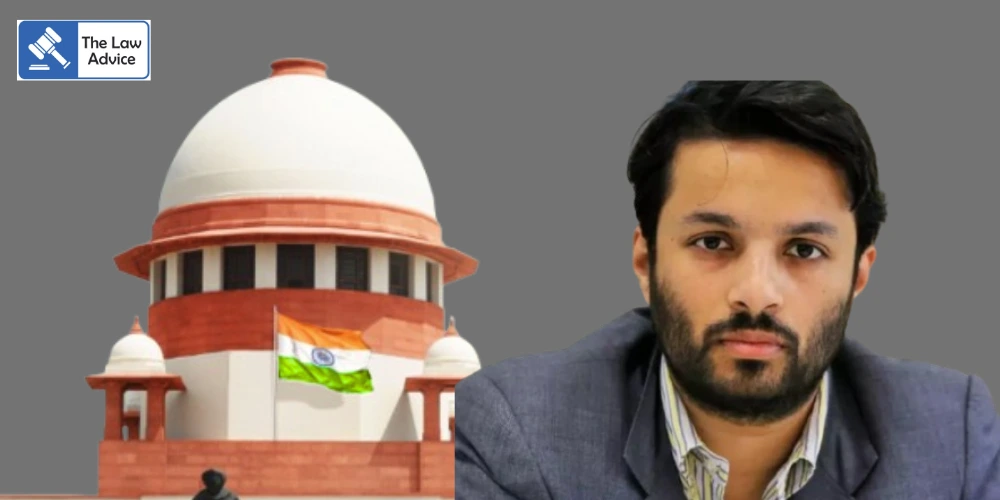The Supreme Court on Monday intervened in proceedings against Professor Ali Khan Mahmudabad, a political science faculty member at Ashoka University, in relation to FIRs registered by the Haryana Police over his social media posts on “Operation Sindoor.”
A bench comprising Justices Surya Kant and Joymalya Bagchi noted the State’s submission that while a closure report had already been filed in one FIR, a chargesheet had been submitted in another. Taking this into account, the Court quashed the FIR where closure report was filed and, with respect to the other, passed an interim order restraining the Magistrate from taking cognizance of the chargesheet.
Appearing for the Haryana Police, ASG SV Raju informed the Court about the latest status of investigation. On behalf of Prof. Mahmudabad, Senior Advocate Kapil Sibal criticized the invocation of Section 152 of the Bharatiya Nyaya Sanhita (BNS), contending that applying provisions relating to “offences attacking the sovereignty of the nation” to mere social media remarks was “most unfortunate.” He further pointed out that the constitutionality of Section 152 BNS itself is under judicial scrutiny before the Supreme Court.
Prof. Mahmudabad was arrested on May 18, 2025 and remained in custody until May 21, when the Supreme Court granted him interim bail. Alongside, the Court had directed the Haryana DGP to constitute a Special Investigation Team (SIT) with senior IPS officers from outside Haryana and Delhi to examine the content of the two social media posts in question.
However, the Court later expressed dissatisfaction with the SIT’s functioning. On May 28, it had clarified that the SIT’s mandate was limited to the two FIRs concerning the online posts, and could not be expanded to probe unrelated matters. Despite this, the SIT reportedly sought information about Mahmudabad’s foreign travels over the past decade and seized his devices, leading the bench to observe:
“You don’t require him, you require a dictionary,” remarked Justice Kant, stressing that the issue pertained solely to the language and expressions used in the posts.
The Court has now directed the SIT to conclude its investigation within four weeks and further restrained it from summoning the Professor again, noting that he had already surrendered his devices and cooperated with the probe.
When granting interim bail, the Supreme Court had imposed strict conditions on Mahmudabad, including:
• No posting or publishing of articles/comments related to the subject matter posts or in connection with terror attacks and India’s responses.
• Full cooperation with investigation and surrender of digital devices.
• Surrender of passport.
The Court also orally directed the Haryana government to ensure that no fresh FIRs are registered on the same issue, though Justice Kant expressed reservations about the tone of Mahmudabad’s earlier posts.
A plea for relaxation of bail conditions has been placed, but the bench stated that a “cooling-off period” was necessary, and asked counsel to revisit the request at the next hearing.
The Court also sought the State’s response to the National Human Rights Commission (NHRC) taking cognizance of the manner in which FIRs were registered in this case. “You tell us about that also,” Justice Kant asked the Haryana AAG.
Case Background
• FIRs were registered by Haryana Police citing provisions under Sections 196, 152, etc., of the Bharatiya Nyaya Sanhita relating to:
• Acts prejudicial to communal harmony.
• Statements likely to cause disharmony.
• Acts endangering national sovereignty.
• Words/gestures intended to insult a woman’s modesty.
• The arrests and subsequent bail sparked debate, with several academics and students condemning the arrest, which also drew sharp judicial observations.
Appearance
• For Petitioner (Prof. Mahmudabad): Senior Advocates Kapil Sibal, Siddharth Luthra, Advocate Nizam Pasha
• For State of Haryana: ASG SV Raju
Case Title: Mohammad Amir Ahmad @ Ali Khan Mahmudabad v. State of Haryana | W.P.(Crl.) No. 219/2025
